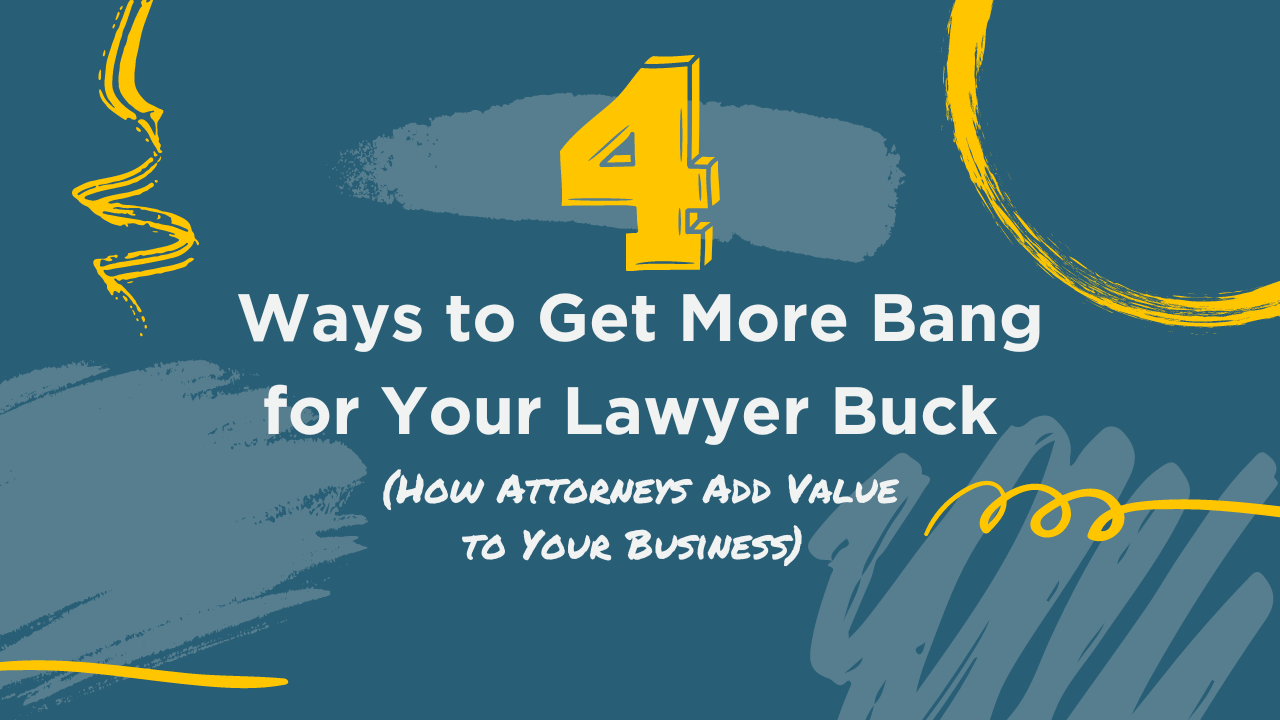Co-authored by Randell Wallace
Stop me if you’ve heard this one: Two lawyers walk into a bar…
Why are lawyer jokes so popular?
One reason (among many) is that most business owners only see their law firm or lawyer as an unwelcome entry on the wrong side of the financial statement. And it’s also true that many businesses only call legal counsel to deal with terrible, awful, no good, very bad situations. Lawsuits, compliance audits, class actions, oh my!
Because lawyers are often called only to deal with bad situations, some people may have a Pavlovian response when their lawyer’s name comes up on the caller ID.
But it doesn’t have to be this way! Using your lawyer for more than last minute emergencies is not just good business practice; it lays the foundation for future success. A good legal advisor helps you build value in your company, prepare you to weather any storm and provide important advice when you need it most.
So just how do we do it?
Insurance Audits
This one is so simple and so vital. It’s incredibly important that your business is insured adequately. Insurance agents are great when it comes to selling you a policy and collecting premiums, but at the end of the day, they do not decide if your losses get paid.
I recently sent a client to an insurance broker to buy a policy to cover her for claims that her artwork infringes the rights of others (these claims happen all the time). The first two policies she brought in for review excluded the very coverage that she was trying to buy. What’s the point in that? It’s like living in the Sahara Desert with flood insurance. A simple review helped the business buy the right policies to protect from losses it was likely to experience. All that money you’re paying for insurance? If you don’t have the right policy then you’re wasting it.
Intellectual Property
Intellectual property isn’t just for the Mark Zuckerbergs of the world. One of the fastest, easiest and least expensive ways to build significant value in your company is to develop a portfolio of intangible assets: patents, trademarks, copyrights, trade secrets and the like.
Think about the most famous trademark of all: Coca-Cola. Wouldn’t you love to own that? What is it worth? The same holds true of patents. Microsoft has reaped billions of dollars letting others use its patent rights in computer software. Every product you see in the grocery store, doctor’s office or Skymall catalog is just as protected.
When it is time to sell the business you have built with blood, sweat and tears, your profits will come from two main areas: tangible assets and intangible assets.
- Tangible assets are generally available in the marketplace and subject to competitive pricing. Think computers, cars and buildings.
- Intangible assets, by definition, are unique to your business and are truly worth what you are willing to take and what someone else is willing to pay. Here is a simple formula:
Intangible assets + Goodwill + Blue sky = Big bucks
In one situation, we helped a small business with an expired lease and less than $50,000 in FFE sell for more than seven figures. The value of its small trademark portfolio made it that desirable.
Make Us Be The Bad Guy
You know that saying “It’s not personal. It’s just business?” Sometimes it’s both. Maybe your brother-in-law is a distributor of supplies you usually would buy from him, but you don’t like him as much after the “Thanksgiving Incident.” Rather than being your own bad guy while re-negotiating a contract, ending a business relationship or firing an employee, let your lawyer do it. As one of my partners often says, “I don’t mind being the paid punching bag.”
Not only is it easier for you to sleep at night, but it also frees up valuable time and energy for you to focus on what really matters: cultivating your business.
Preparing Your Business For Sale
This is the big one. As a small business owner you might have put your profits back into your business rather than storing them in a retirement account. Your business is effectively your retirement account. So how do you cash out, move to the beach and start that juice hut?
Believe it or not, when the time comes to exit your business, the right lawyer can help you maximize business asset value, shed liability and avoid unnecessary taxation. Having the options of an asset sale, stock sale, ESOP or liquidation, which is right for your business? Perhaps you want to reward your employees for their efforts and avoid the hassle of finding the right buyer for your company. An ESOP might be a perfect solution.
These are just a few ways that a lawyer can add to your business rather than detract from it. Really, your lawyer should be vested in the success of your business. Your success moves a lawyer-client relationship into a rewarding business partnership. And that’s no joke.
More Articles You Might Like:
.png)







.png)




-5.png)

